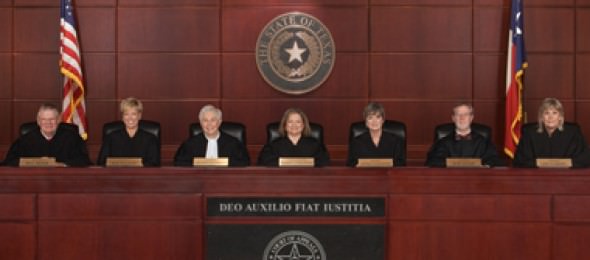The 2nd District Appeals Court in Fort Worth has held that a trial court has a ministerial duty to rule on a party’s motion to compel arbitration. In Kelly v. Hinson, No. 02–12–00058–CV, (Tex.App.–Fort Worth, 2012), two investors, Phillip Hinson and Don Siratt, filed a lawsuit against Technotree International, LLC and two of the company’s officers, William J. Kelly and Ariel I. Quiros, (“LLC”) to recover a refund of certain investments made in the corporation in 1999. According to the investors, William J. Kelly personally agreed to fully refund Hinson and Siratt’s investment of $130,000 after ten years if total dividends and distributions paid to them did not equal that amount. As part of their investment, both Hinson and Siratt received a copy of the LLC’s regulations and operating agreement which contained an arbitration provision.
After the investors filed their lawsuit, the pro se LLC repeatedly asked the court to compel the dispute to arbitration through a number of letters and telephone calls. A Tarrant County District Court judge did not rule on the parties’ motion to compel arbitration and instead granted a motion for summary judgment that was later filed by the investors. The LLC then appealed the case to Texas’ 2nd District Court of Appeals.
The investors argued that the trial court properly failed to rule on the LLC’s request for arbitration because the pro se LLC did not specifically request a hearing on the matter. In response, the Fort Worth court stated, “[b]oth Texas and federal law strongly favor arbitration.” In addition,
The Agreement and the arbitration clause at issue were specifically identified in the motion, and a copy of the Agreement containing the arbitration clause was attached to the motion. During the next eleven months, Appellants repeatedly requested a hearing and a ruling on the arbitration motion; Appellants mailed three letters to the trial court requesting a ruling or a hearing on their motion to compel arbitration, served opposing counsel with copies of the letters, sent in a certificate of conference indicating that Appellees did not agree with the motion to compel arbitration, and filed a motion for a telephonic hearing on their motion to compel arbitration. Appellants communicated via telephone with the court coordinator in an effort to set a hearing on their motion. We hold that the trial court had a ministerial duty to set Appellants’ motion for arbitration for a hearing and to rule on it.
The appeals court continued,
Appellees’ contention that Appellants “did not request a hearing, or object to any perceived refusal by the trial court to rule” is not supported by the record before us. As set forth above, Appellants’ letters requested a ruling and a hearing, and ultimately Appellants filed a motion explicitly requesting a fifteen-minute telephonic hearing on their motion to compel arbitration.
Next, the 2nd District dismissed the investors’ argument that the LLC waived its right to a trial court ruling on the motion to compel arbitration because the LLC failed to file a response to the investors’ motion for summary judgment. According to the Fort Worth court, the investors’ position was simply not supported by case law.
Finally, the appeals court disagreed with the investors’ argument that the LLC’s motion to compel arbitration was void because it was not signed by an attorney. The court stated,
Appellees neither objected in the trial court to the pro se status of the motion to compel arbitration nor filed a motion requesting that Quiros show authority to proceed on behalf of TTI. See Tex. R. Civ. P. 12. A document filed in court by a nonlawyer purportedly on behalf of a corporation is defective but not void and may be effective for certain purposes.
The court went on to state,
Thus, Appellants’ motion to compel arbitration—signed by a nonlawyer, managing member of TTI—was not void ab initio, and its unobjected-to, pro se status did not excuse the trial court from performing the ministerial duties of setting the motion for a hearing and ruling on it.
Because the trial court had no discretion to refuse to rule on the LLC’s motion to compel arbitration, the 2nd District Appeals Court reversed and remanded the case without reaching the merits.














